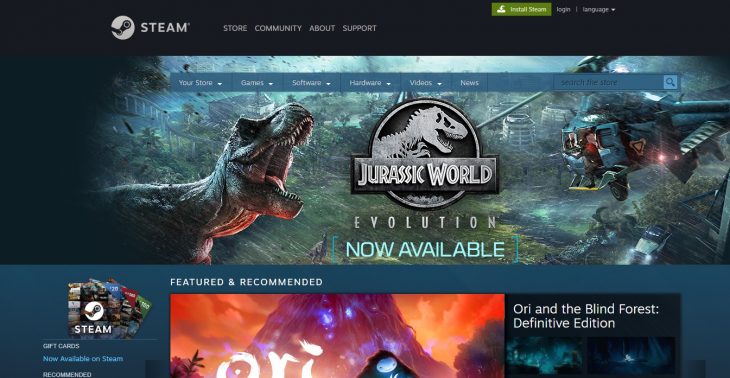Steam users showing decline in 2018

Steam users have seen an unusual decline since January 2018 into this summer. While it isn’t abnormal for Steam users to show a slight decline over the Summer, with many people going on holiday, this year is unique in how steep the decline has been over the last seven months.
The decline in Steam users was noted on the SteamSpy Twitter account, which used data from Steam DB in order to track the data. The figures showed that Steam has experienced an all-time high number of users from the last three years this January, at around 18.5 million. The decline began then, and over the last seven days Steam users were reported to be at around 15 million, a drop of 3.5 million users.
Alongside the fall in users SteamSpy also noted a drop in the number of active players using a game at any given time. The drop here has gone from 38 percent to 31 percent over the same period of time. This decline isn’t as sharp but still indicates that a large number of users are playing games on Steam less.
The decline in users can be attributed, in part, to PUBG. The game launched out of alpha last December and the boost would’ve bled into January 2018, when the game had its highest player count. Since then PUBG has seen a fall in active players of around 2 million, which can account for about half the total decline in Steam users over the last seven months.
It’s not clear whether the players lost from PUBG have moved over to Fortnite, which is now the most popular battle royale game, but it still doesn’t account for the second half of the Steam user loss.
Generally there is a lack of game releases over the course of summer since publishers tend to target the bigger sales periods, the holiday season for example is easily the most popular. However, many publishers have begun targeting the first quarter of the year for their releases, meaning even less titles are releasing during the summer months. Only time will tell if this slump in Steam users is temporary or whether a large number of gamers are moving to different platforms such as home consoles, GOG, Origin, or other similar services.


